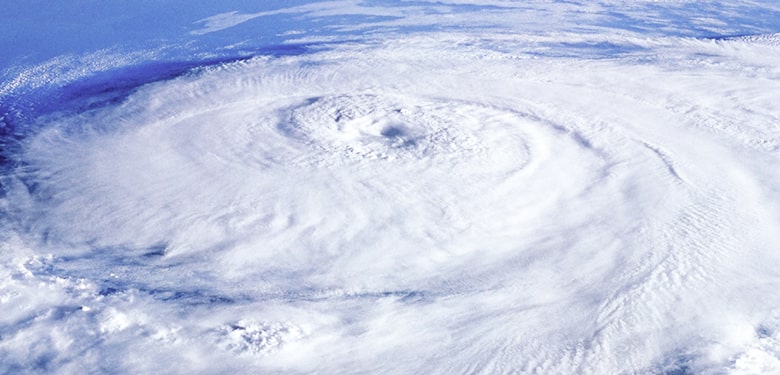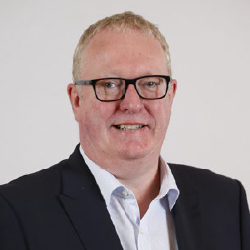The future is now
This year’s CSR Asia Summit will be held on 23rd and 24th September 2020 in Singapore. The theme of the Summit is “The Future is Now”. This reflects the fact that in so many areas of sustainability we cannot afford to wait and plan but need to act NOW. During our turbulent times, the Summit will stress the need for action, urgency and the imperative to implement effective solutions to current challenges.
Seeing future challenges as something we can deal with in the future has been our mistake for the last few decades
In tackling future challenges now, businesses, investors and other stakeholders are developing strategic partnerships and working together on creating positive change. They are recognizing the need to share best practice, try new ideas, involve their own staff and create new collaborations that will drive the innovation that we need.
The challenges are many and diverse. They include the fact that the planet is now warming faster than many had predicted only a decade ago. Ice sheets are melting at an alarming rate and forest fires have exacerbated carbon emissions. Biodiversity is being impacted with 480 million animals being lost in the Australian bushfires alone.

Credit: NOAA
Leadership for the climate crisis and plastic plague
Governments remain slow to act on the climate crisis and some politicians remain in denial. There is a crucial role for the private sector to take a leadership role and demonstrate that they are willing to act in the interests of society rather than just their shareholders. Leading businesses, encouraged by investors, have actually taken a lead on decarbonizing their own operations as well as pushing carbon reduction initiatives down their supply chains. The CSR Asia Summit will showcase some of these innovations.
Another urgent challenge facing the planet is to deal with plastic waste that is now impacting food security and health. A resource that can be so useful in protecting food and promoting good hygiene is, somewhat ironically, having the opposite impact. The accumulation of plastic waste on land and in the sea must be cleaned up now.
But if we view this plastic as a valuable resource rather than a source of pollution then we should be able to collect and recycle a material that can be used over and over again. This requires us to think hard about why we undervalue resources. It also requires innovation to turn our traditional manufacturing processes into resource efficient, closed loop, circular systems. Again, this will require the type of innovation that we will showcase at the CSR Asia Summit.
Ending modern slavery now
On the social side, there is an urgent need to act now on the scourge of modern slavery and human trafficking. There is more forced labor in the world now than ever before. Human beings are being owned by other human beings and exploitation and extortion continues to exist along the supply chains of many companies. In 2020, we might be less likely to find children in factories, but they exist in abundance in fields, forests, restaurants, hotels and on fishing boats.
Leading companies are beginning to address these supply chain challenges through better identification of risks and recognizing the need to work on strategic partnerships with others to deal with deep supply chain challenges in Tier 2 and beyond. The Summit will examine what leading businesses are doing to move toward more responsible recruitment of workers and avoid all forms of forced labor.
Learnings from the coronavirus
We have seen real leadership amongst businesses during the recent outbreak of the COVID-19 coronavirus. Finding flexible and innovative ways to keep businesses moving has been a characteristic of many leading companies. Faced with a major economic downturn, businesses have often developed new trusted relationships with their own staff, developing new ways of working and delivering good and services. (Read about ELEVATE’s response.)
Asia’s take on the future of work
In that light, the future of work is something that is now a very hot topic. Many employers are seeing flexibility as the new norm. New ways of working may include a four-day working week, more scope for long leave and sabbatical arrangements, increased paternity provisions and remote working arrangements. As we experience an increasing battle for talent in Asia, it is not only salary levels that influence the employment choices of future generations.
Transparency, innovation and disclosure in sustainability reporting
We need to rectify the mistake of leaving future challenges to the future. We need to be able to anticipate change and act now, working together on innovative solutions to the many sustainability challenges that we face. Anticipating the future and acting now is what leading responsible businesses are doing. They are communicating and reporting on their successes (and sometimes even their failures). Transparency and innovation have been key. But we need even more effort from those pioneers as well as encouraging others to adopt a more responsible approach to doing business.
Join us at the CSR Asia Summit for a deeper understanding of the challenges we face and develop innovative best practices to protect our planet, respect human rights and still make a profit!
Make the most of this leap year. The launch price expires on 29 February 2020
About the author
